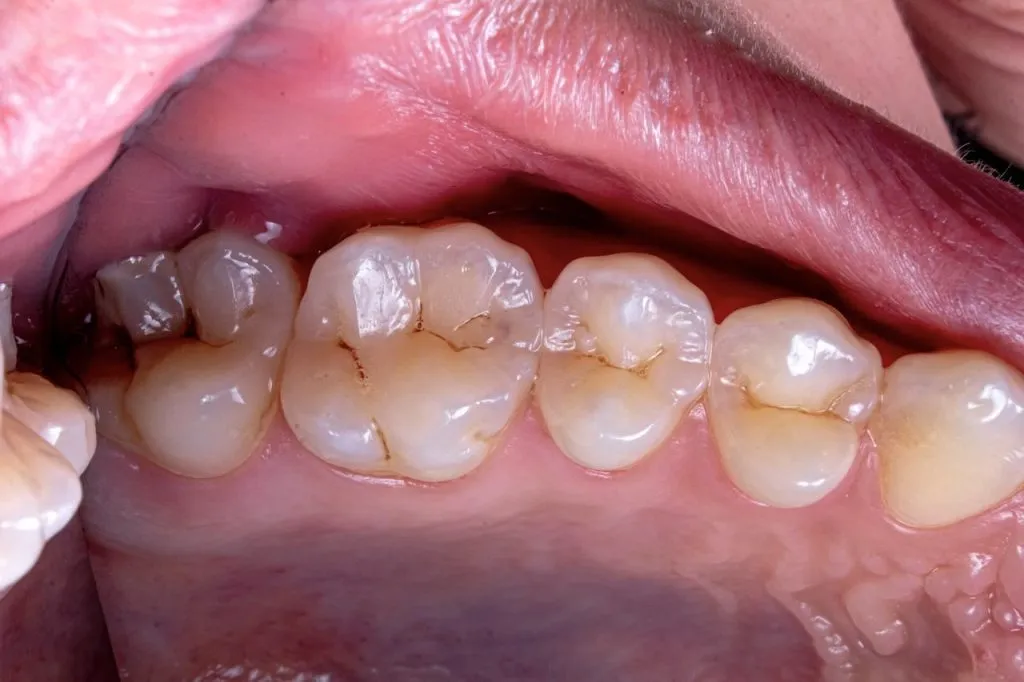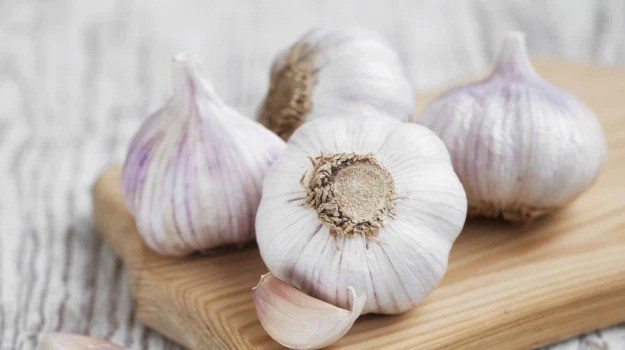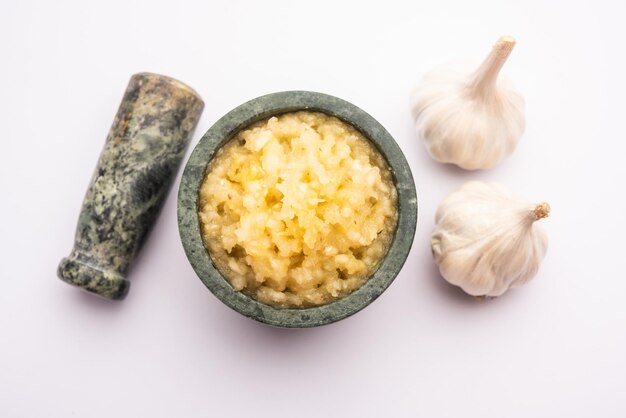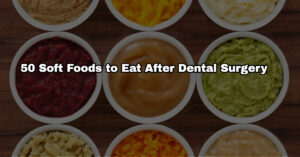
The Power of Garlic:

Garlic, which is often used in cooking, is more than just a way to add flavour to dishes. It is known for its great health benefits especially in fighting bacterial infections. Garlic has a substance called allicin which has been shown to kill bacteria effectively in many studies. This substance works well against bacteria that often cause dental infections such as Staphylococcus aureus and Streptococcus mutans.
Besides its ability to fight bacteria, garlic also helps boost the immune system. A strong immune system is important for fighting infections including those in the mouth. Eating garlic regularly can make the immune system stronger, helping the body to fight and prevent infections more effectively. This makes garlic a great natural choice for those who want to handle dental problems in a natural way.
How Garlic Fights Tooth Infections:
Garlic works against infections starting from a very small level inside it. When garlic is crushed it releases a substance called allicin. Allicin is known for fighting microbes. It damages the walls of bacterial cells causing them to break and die. This is very important for stopping the spread of infections in the mouth and lowering the number of harmful bacteria.
Additionally garlic reduces swelling and pain because it has anti-inflammatory properties. These properties help ease the discomfort making it easier for people to deal with their symptoms while their immune system fights the infection. Using garlic regularly either by applying it or eating it, can greatly lessen the severity of symptoms and help heal faster. This makes garlic an important natural option for dental care.
Using Garlic as a Natural Antibiotic for Tooth Infection:

Raw Garlic: One simple way to use garlic for a tooth infection is to chew a raw clove. This method allows the allicin which is a compound in garlic to directly reach the infected area and fight the infection. Chewing garlic can be strong and unpleasant for some people but it is a very effective way to get its healing benefits right where they are needed.
Garlic Paste: Another method is to make a paste from garlic and use it on the infected tooth or gums. Crush a few cloves of garlic and mix them with a bit of salt which helps boost the antibacterial power. Apply this paste directly to the sore spot for a few minutes then rinse your mouth with water. This not only helps fight the infection but can also ease pain temporarily.
Precautions and Considerations:
While garlic is generally safe to eat and often used as a natural remedy, there are important precautions to consider especially when using it for dental infections. Raw garlic is very strong and can irritate or even burn the skin or inside of the mouth. If you are applying garlic directly to your gums or teeth, use it carefully and don’t leave it on for too long to prevent damage or discomfort.
If you have sensitive skin or gums then try a very small amount of garlic first to see how you react before using it more frequently. If you feel burning or irritation you might need to dilute the garlic with a carrier oil, like olive oil or use a less concentrated form of garlic. Also eating a lot of raw garlic can upset your stomach and cause problems like heartburn, gas or diarrhoea. Start by adding small amounts of garlic to your diet and see how your body handles it.
Final words
Garlic is a natural powerhouse with both antibacterial and anti-inflammatory properties making it a great choice for treating tooth infections. By using garlic in different forms as part of your oral care routine you can take advantage of its benefits while also getting its nutritional value for your overall health. However it’s important to remember that while natural remedies are helpful they should not replace the guidance and treatment from healthcare professionals.


